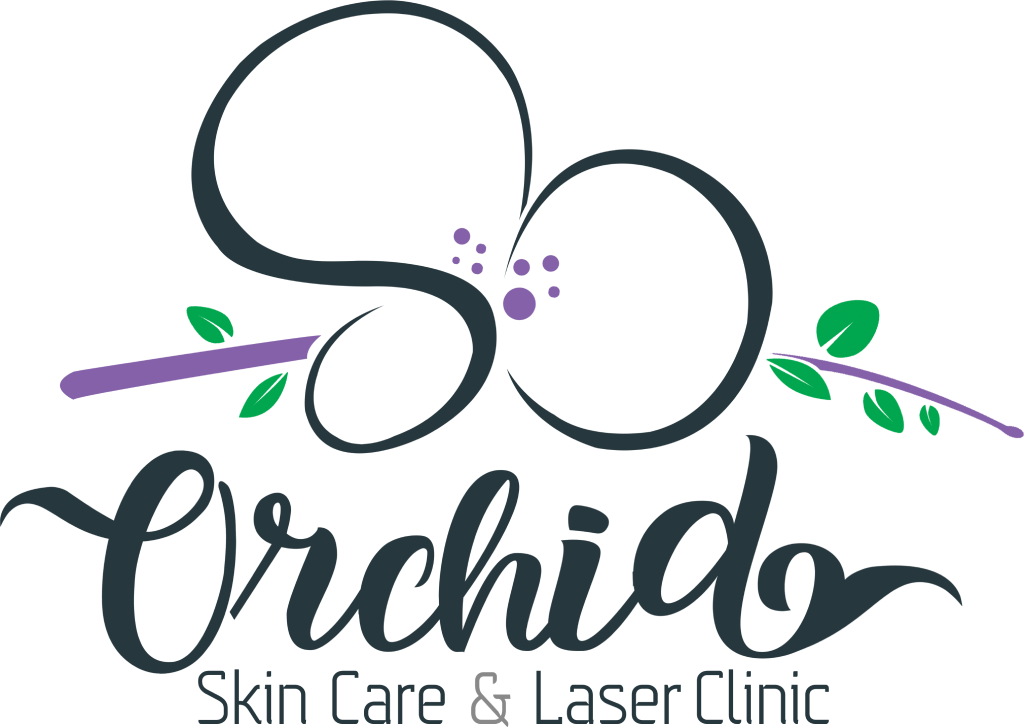Introduction to Stress and Skin Health
In today’s fast-paced world, stress is an unavoidable part of life for many. But beyond its immediate mental and emotional toll, stress can also manifest physically, particularly in the health and appearance of our skin. Understanding how to manage stress effectively is crucial, as it not only impacts our mental well-being but also our physical health, including our skin. Here’s how stress impacts your skin health:
- Hormonal Fluctuations: Stress triggers the adrenal glands to release cortisol, the “stress hormone,” which can disrupt other hormones and increase oil production in the skin.
- Immune System Response: While short-term stress can temporarily lower inflammation, chronic stress weakens the immune system, impairing the skin’s ability to repair itself and combat acne-causing bacteria.
- Skin Symptoms: Stress can lead to a variety of skin issues, including dullness, dry patches, redness, and exacerbated acne.
- Long-Term Effects: Prolonged stress contributes to chronic inflammation, accelerating the aging process and leading to significant skin damage over time.
This blog post will explore the link between stress and skin health in depth, offering insights and strategies to manage stress and maintain healthy, vibrant skin.
Understanding How Stress Impacts the Body
Stress and skin health are intrinsically linked through a series of biochemical reactions within the body. When faced with stress, the body responds by activating the hypothalamic-pituitary-adrenal (HPA) axis, which regulates the secretion of cortisol. This hormone prepares the body to face immediate challenges by diverting energy to essential functions, potentially at the expense of others, such as skin repair and regeneration. This constant state of alert not only depletes the skin’s natural resources but also disrupts hormonal balance, leading to visible skin issues. Managing stress for healthy skin is therefore not just about skincare but also about maintaining overall hormonal balance and well-being.
The Science Behind Stress-Induced Hormonal Changes
The link between stress-induced hormonal changes and skin health is a critical aspect of understanding skincare and well-being. Cortisol, often released in response to stress, can increase the skin’s oil production by stimulating sebaceous glands. This excess oil can clog pores, leading to acne and other skin conditions. Additionally, cortisol can decrease the production of hyaluronic acid, making the skin less able to retain moisture, appearing dry and less plump. Managing stress effectively can help maintain the balance of these hormones, promoting healthier skin and preventing stress-related skin problems.
Stress and the Immune System: A Complex Relationship
The relationship between stress and the immune system plays a significant role in skin health. Chronic stress can lead to a suppressed immune system, which decreases the skin’s ability to fight off pathogens and respond to injuries effectively. This suppression can exacerbate inflammatory skin conditions such as psoriasis and eczema and slow down the healing process of the skin, making blemishes and skin lesions last longer. Therefore, managing stress for healthy skin is crucial, as a well-functioning immune system is key to maintaining clear, healthy skin and overall well-being. Engaging in stress reduction techniques and prioritizing skincare can help bolster the immune response and enhance skin health.
The Visible Effects of Stress on Your Complexion
Stress can trigger a range of skin problems, from a dull, uneven skin tone to noticeable breakouts. When stressed, blood flow to the skin is reduced as the body prioritizes other organs, leading to a lack of oxygen and nutrients which are crucial for skin health. This results in a complexion that can look sallow or washed out. Additionally, stress can exacerbate skin conditions like rosacea and eczema, causing redness and irritation. These visible signs not only affect one’s appearance but can also impact mental well-being, making managing stress for healthy skin an essential aspect of skincare and well-being.
Identifying Stress-Related Skin Symptoms
Common signs include increased oiliness or dryness, acne, rashes, hives, and heightened sensitivity. Stress can also trigger flare-ups of existing skin conditions such as eczema, psoriasis, and rosacea. The skin may also become more reactive, leading to redness or itching. Understanding these symptoms as indicators of stress can prompt strategies to manage stress, supporting skin recovery and maintaining long-term health.
Long-Term Impact of Chronic Stress on Skin Health
Over time, chronic stress can lead to a degradation of collagen and elastin, the proteins that keep skin firm and elastic. This can accelerate the aging process, leading to premature wrinkles and sagging skin. Chronic stress also impairs the barrier function of the skin, making it more susceptible to infections and environmental damage. Managing stress is thus crucial not only for current skin appearance but also for preserving its health and integrity over time, highlighting the importance of integrating stress management into daily skincare routines.
Stress-Induced Breakouts: How and Why They Occur
When stressed, the body produces more androgens, a type of hormone that stimulates the oil glands and hair follicles in the skin, leading to oily skin and acne. These breakouts can occur even in individuals who do not typically suffer from acne and can be more challenging to manage due to the ongoing stress. Understanding the connection between stress and breakouts is key to developing effective skincare and stress management strategies, ensuring both mental and skin health are maintained.
Mechanisms of Stress-Induced Acne
The mechanisms of stress-induced acne involve a complex interplay of hormones, skin oil production, and immune response. Increased levels of cortisol and androgens due to stress can elevate sebum production, while simultaneously promoting inflammatory pathways within the skin. This not only leads to the clogging of pores but also makes the skin an ideal environment for bacteria that cause acne. Furthermore, stress can decrease the skin’s ability to heal, prolonging the duration of acne breakouts. Effective management of stress, therefore, plays a crucial role in mitigating these breakouts, underscoring the importance of holistic approaches in skincare and overall well-being.
The Role of Cortisol in Acne Development
Cortisol plays a significant role in the development of acne, particularly when its levels are elevated by stress. This hormone, while essential for managing stress responses in the body, can have detrimental effects on skin health. Elevated cortisol levels lead to increased sebum production in the skin’s oil glands, a direct contributor to clogged pores and acne outbreaks. Additionally, cortisol can thin the skin, reduce its ability to heal, and decrease the production of important substances like collagen and hyaluronic acid, making the skin more vulnerable to acne scars and other imperfections. Effective management of cortisol through stress reduction techniques is crucial for maintaining skin health and preventing acne, highlighting the intricate connection between managing stress for healthy skin and overall skincare and well-being.
Inflammation and Acne: Connecting the Dots
Stress-induced inflammation exacerbates the severity of acne by promoting redness and swelling around the clogged pores. This occurs because stress triggers the release of inflammatory cytokines in the body, which can exacerbate skin inflammation and worsen acne. Moreover, the inflammatory response can disrupt the skin’s barrier function, making it more susceptible to bacteria and further aggravating acne. Understanding this connection highlights the importance of anti-inflammatory treatments and stress management in skincare regimes. Managing stress effectively not only helps reduce the occurrence of acne but also aids in the overall enhancement of skin health and well-being, making it a vital component of holistic skincare approaches.
Psychological Stress and Skin Barrier Function
Under stress, the body’s chemical responses can weaken this barrier, making the skin more permeable and less resistant to external threats. This breakdown can lead to increased skin sensitivity, dryness, and irritation, as the skin loses its ability to retain moisture effectively. Additionally, the compromised barrier may trigger or worsen conditions such as eczema and psoriasis. Managing stress effectively is thus crucial for maintaining the integrity of the skin barrier, ensuring the health and resilience of the skin. Incorporating practices that promote relaxation and reduce psychological stress can help preserve skin barrier function and improve overall skin health and well-being.
How Stress Affects Skin Hydration and Barrier Repair
When stressed, the body produces less of the natural oils and lipids that maintain the skin’s hydration and elasticity. This reduction can lead to dehydrated, tight, and flaky skin, which not only looks unhealthy but is also more prone to damage and aging. Furthermore, stress can slow down the skin’s natural repair processes, hindering its ability to heal from environmental damage and daily wear and tear. By managing stress for healthy skin, individuals can help restore the skin’s hydration levels and enhance its repair mechanisms, contributing to a healthier complexion and better overall skincare and well-being.
Stress and Its Impact on Skin’s Microbial Balance
Under stress, changes in the production of sebum and skin pH can alter the skin’s microbiome, leading to an overgrowth of harmful bacteria and a decrease in beneficial bacteria. This imbalance can trigger inflammatory responses, exacerbate skin conditions, and weaken the skin’s natural defenses. Managing stress is therefore essential not only for maintaining the microbial balance but also for supporting the overall immune function of the skin. Effective stress management, coupled with appropriate skincare practices, can help maintain a healthy microbial balance, promoting clearer, healthier skin and enhancing overall well-being.
Managing Stress for Healthy Skin: Practical Advice
Recognizing the direct impact of stress on skin health is essential for anyone looking to maintain a vibrant and healthy complexion. Practical advice includes setting aside time for relaxation and hobbies, maintaining a balanced diet, and ensuring regular physical activity, all of which contribute to lower stress levels and better skin health. Additionally, establishing a consistent skincare routine tailored to stress-related skin conditions can help mitigate the negative effects of stress. Integrating these practices into daily life not only improves skin health but also enhances overall well-being, underscoring the importance of a holistic approach to stress management.
Effective Stress Management Techniques for Better Skin Health
Regular physical activities, such as yoga or jogging, help release endorphins, improving mood and reducing stress. Deep breathing exercises and progressive muscle relaxation are also effective in calming the nervous system and reducing the physical symptoms of stress. Engaging in regular social activities and maintaining a supportive network can also alleviate stress. By adopting these techniques, individuals can manage their stress levels more effectively, leading to healthier skin and a better sense of overall well-being.
Mindfulness and Meditation: Tools for Reducing Stress
Mindfulness and meditation are powerful tools for reducing stress, with direct benefits for skin health. These practices involve focusing the mind on the present moment and becoming aware of our thoughts and sensations without judgment. Regular mindfulness exercises and meditation can significantly lower levels of cortisol, thereby reducing the risk of stress-induced skin issues like breakouts and premature aging. Additionally, these practices enhance emotional resilience, enabling better management of stressors when they arise. Incorporating mindfulness and meditation into daily routines can be a simple yet effective way to support not only mental health but also skin health and overall well-being.
The Importance of Sleep in Managing Stress and Maintaining Skin Health
Sleep is a critical time for the body to repair and regenerate, including the skin. Lack of sleep can increase stress levels and exacerbate skin problems such as acne, eczema, and signs of aging. Ensuring seven to eight hours of quality sleep each night helps regulate hormone levels, supports the immune system, and improves skin health. Establishing a regular sleep schedule, creating a restful environment, and avoiding stimulants before bedtime are essential strategies for achieving restorative sleep, thereby reducing stress and promoting healthier, more radiant skin.
Dietary Considerations for Stress Reduction and Skin Health
A balanced diet rich in antioxidants, vitamins, and minerals can significantly impact the body’s ability to cope with stress and maintain healthy skin. Foods high in vitamins C and E, as well as selenium and zinc, support the immune system and can help protect the skin from oxidative stress. Omega-3 fatty acids found in fish like salmon and mackerel, as well as in flaxseeds and walnuts, are known for their anti-inflammatory properties, which are beneficial in managing stress and reducing skin inflammation. Incorporating a variety of whole foods, such as fruits, vegetables, and whole grains, not only supports overall health but also enhances skin health, providing essential nutrients that help the skin look and feel its best.
Foods to Avoid and Choose for Stress Management and Skin Health
When considering foods to avoid and choose for stress management and skin health, it is important to focus on reducing intake of processed foods, sugars, and high-glycemic carbohydrates, as these can exacerbate stress and lead to skin issues like acne. Instead, prioritize foods that are high in complex carbohydrates, such as whole grains, legumes, and vegetables, which help maintain a steady blood sugar level and reduce stress. Additionally, it is beneficial to avoid excessive caffeine and alcohol, as these can contribute to dehydration, negatively affecting skin health. On the other hand, incorporating foods rich in antioxidants, such as berries, nuts, and green leafy vegetables, can help counteract the effects of stress on the skin by fighting free radicals and improving skin resilience.
The Role of Hydration in Stress Management and Skin Care
Water is essential for maintaining the optimal function of every system in the body, including the skin. Adequate hydration helps to flush out toxins, maintain skin elasticity, and prevent skin from becoming dry and flaky. Drinking enough water throughout the day is one of the simplest yet most effective ways to reduce stress and boost skin health. It helps in maintaining proper circulation and skin hydration, which are crucial for a glowing complexion. Additionally, avoiding dehydrating beverages like high caffeine drinks and alcohol and substituting with water, herbal teas, and hydrating foods such as cucumbers and watermelon can further enhance skin hydration and contribute to overall well-being.

Skincare Routines to Support Stressed Skin
Developing a skincare routine that supports stressed skin involves personalized assessments to identify specific skin needs, followed by tailored facials that address unique skin issues. Incorporating regular treatments such as HydraFacials or chemical peels can significantly enhance skin resilience and improve its capacity to handle stress-related conditions. These customized routines ensure deep hydration and rejuvenation, key to maintaining healthy skin in stressful environments.
Choosing the Right Skincare Products and Services for Stress-Related Skin Issues
Selecting appropriate skincare products and services is crucial for managing stress-impacted skin. Personalized consultations help pinpoint the right treatments and products like special serums and creams designed to soothe and restore stressed skin. Services such as acne treatments and LED light therapy are also beneficial in addressing and mitigating the direct effects of stress on the skin, helping to maintain a clear and healthy complexion.
Anti-Inflammatory Skincare Products and Services and Their Benefits
Anti-inflammatory skincare products and services are essential for reducing stress-related skin inflammation. Treatments that include the use of products with natural anti-inflammatory ingredients, such as aloe vera and green tea, help soothe and calm the skin. Regular use of these products, coupled with professional services like sensitive skin facials, can alleviate redness, reduce irritation, and promote a healthier skin barrier.
Routine Adjustments to Combat Stress-Related Skin Changes
Adjusting skincare routines to respond to stress-related skin changes involves incorporating seasonal skincare strategies and modifying treatments as needed. Transitioning to more intensive moisturizing treatments during colder months or enhancing the routine with calming masks after stressful periods helps the skin recover and maintain its health throughout the year. These adjustments ensure the skin is optimally supported against environmental and emotional stress factors.
Conclusion: Reinforcing the Connection Between Stress Management and Skin Health
The undeniable link between stress and skin health highlights the importance of effective stress management for maintaining not only your skin’s appearance but also its overall well-being. At Orchid Skincare, we specialize in providing comprehensive skincare solutions that cater to the unique needs of individuals dealing with stress-related skin issues. Our expert team is deeply committed to guiding you through personalized skincare routines that are specifically designed to combat the effects of stress on your skin.
Orchid Skincare offers a holistic approach to skincare, integrating stress management techniques with advanced skincare therapies. By focusing on both internal and external factors that influence skin health, we ensure that our clients receive the most effective and sustainable skincare solutions. Our services range from in-depth skin assessments to customized treatment plans that include both topical treatments and lifestyle adjustments to help mitigate stress’s impact on your skin.
Discover the difference that a focused, stress-managing skincare regimen can make. Visit Orchid Skincare Vancouver online to explore our extensive range of services and resources dedicated to promoting healthier, more resilient skin. Let us help you transform your skin care routine and see the positive changes that come with managing stress effectively.


